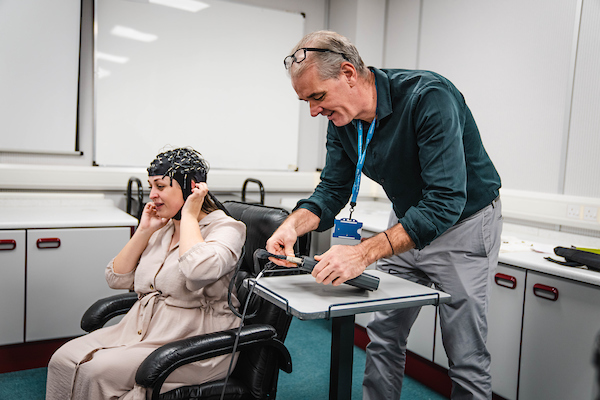
University of Bolton, Deane Road, Bolton. BL3 5AB
Tel:
Email:


“At the University of Bolton, we take great pride in providing a quality, supportive learning environment for our students.”
Professor George E Holmes DL | President & Vice Chancellor
“...tutors are very supportive and you’re not just a student ID number, at this university you are an individual with a name.”
Ellisse Vernon | BSc (Hons) Adult Nursing
Back to menu
Back to menu
Study with an Off-Campus Partner
Back to menu
Back to menu
University of Bolton, why we are the right choice
Location - Bolton, Greater Manchester

06/12/2021
If you love listening to people and finding out how the mind works, a degree in psychology could be the perfect choice for you.
Psychology can open the door to a wide range of different careers including teaching, counselling, social work and of course, psychology or psychotherapy.
Not sure what psychology is? Here’s a short guide to what the study of psychology is all about, and how we use it in our day-to-day lives.
What is the study of psychology?
Psychology is the study of the mind and behaviour. It’s all about understanding why people think, act and behave in specific ways.
Psychology has been around for thousands of years, with Greek thinkers like Socrates and Aristotle being the first to understand its use. Even today, there are several schools of learning, with different theories about how people think the way they do.
There have been several psychological experiments that have had a significant impact on understanding how we conduct ourselves. Some of these experiments include:
• Marshmallow test - This test was carried out by Walter Mischel to see the effect of delayed gratification on children. Children were offered a marshmallow or pretzel and then told that they could have two treats later if they could wait. Children who were happy to wait were typically more likely to do better at school
• Pavlov’s dog - Ivan Pavlov carried out an experiment on dogs, ringing a bell while serving food to see if ringing the bell alone caused the dog to salivate in anticipation. This led to the discovery of classical conditioning. Where one stimulus becomes associated with another stimulus
• Stanford prison experiment - Phillip Zimbardo wanted to see if prison brutality was due to the guards’ personality or whether it was affected by the environment they were in. He built a mock prison to see which was the case, randomly assigning participants as guards or prisoners. The experiment had to be cut short as the guards became too aggressive with the prisoners – showing that behaviour was indeed situational
• Stanley Milgram experiment - Milgram wanted to see how far people would go to obey authority. Participants were instructed to give someone else (an actor) an electric shock if they got an answer wrong on a test. Participants went on to give the person bigger electric shocks if told to, even if they were in great pain
Unlock your potential with a degree in psychology

If you want to understand more about the power of psychology, a degree from the University of Bolton can help boost your knowledge.
You can combine your learning with cognitive neuroscience, counselling or psychotherapy, leading to a degree that is as unique as you are.
Located in Greater Manchester, the University of Bolton is ranked No.1 for Teaching Satisfaction in the North West.*
We’re now accepting students for our January 2022 uptake, meaning you can start working towards a career in psychology sooner than you think.
Find out more about the psychology degrees you can study for.
*Guardian University Guide, 2022